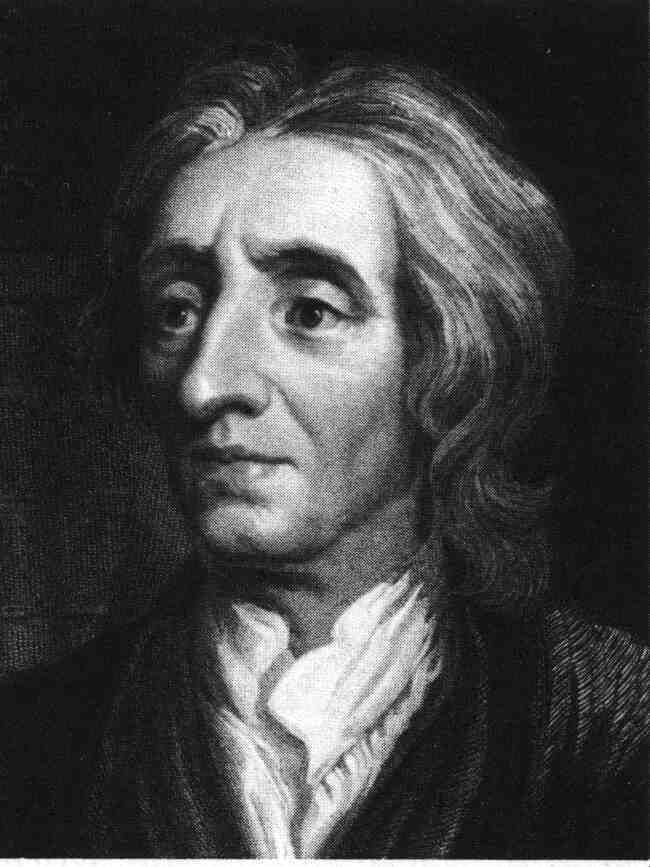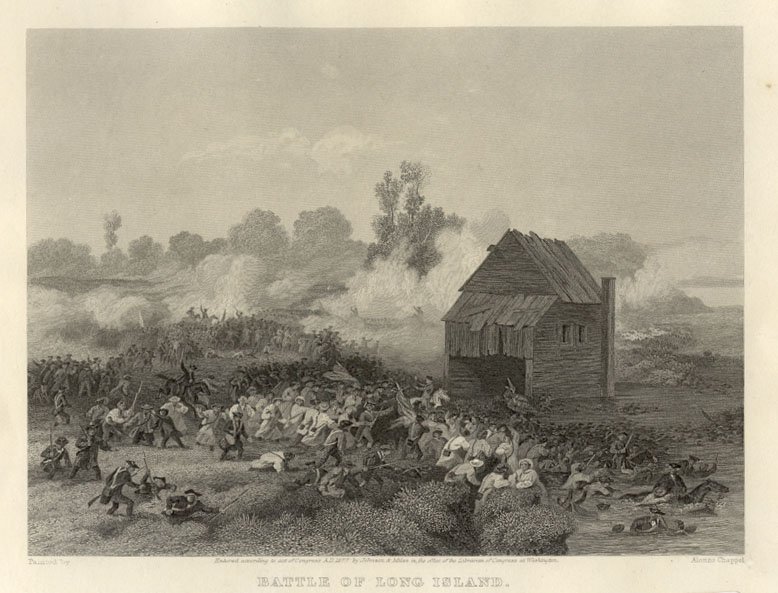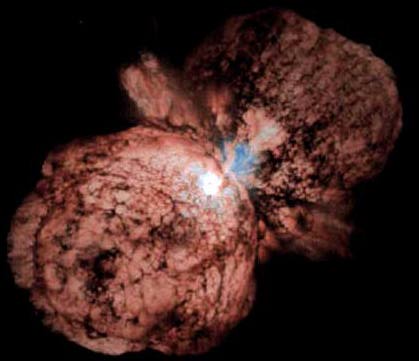NAVIGATION COLUMN
Home Page
The Keninger Archives
The Propagander
Yahoo Groups:
History 1 Day 2
Nuremburg Data
Daily History Pages:
FAIR USE NOTICE: This site could contain copyrighted material the use of which has not always been specifically authorized by the copyright owner. We are making such material available in our efforts to advance understanding of historical, political, human rights, economic, democracy, scientific, environmental, and social justice issues, etc. We believe this constitutes a 'fair use' of any such copyrighted material as provided for in section 107 of the US Copyright Law. In accordance with Title 17 U.S.C. Section 107, the material on this site is distributed without profit to those who have expressed a prior interest in receiving the included information for research that could include educational purposes. If you wish to use copyrighted material from this site for purposes of your own that go beyond 'fair use', you could most likely need to obtain permission from the copyright owner.
|
August 29

0029 Death: John the Baptist, by beheading. Note: The date for this item is a best guess, and the subject of much debate.
0070 The Temple of Jerusalem is burned after a nine-month Roman siege.
1350 The Hundred Years War: A Spanish fleet under La Carda is defeated by the English at the battle of Winchelsea after they enter the English Channel to support the French.
1475 The Truce of Picquigny: Edward IV of England agrees to withdraw his invading army from France in return for gold and a yearly pension.

1526 Turkish-Hungarian War: 30,000 Hungarians under King Lewis II and Tomore are defeated by over 100,000 Turks under Ottoman Suleiman the Magnificent at the Battle of Mohacs.

1533 Death: Atahualpa, last Incan King of Peru, strangled by Spanish conquerors by order of Francisco Pizarro, even though the chief had already paid his ransom. The Inca Empire died with him.

1632 Birth: John Locke, Somerset-born and Oxford educated English philosopher, founder of philosophical liberalism, whose ideas will influence the American founding fathers and form the basis of social contract theory, famous for his treatise An Essay Concerning Human Understanding. Died in 1704. 'all knowledge is founded on and ultimately derives from sense...or sensation.'
1708 Haverhill, Massachusetts is destroyed by French and Indians attackers.
1756 On learning of the Franco-Austrian alliance, Frederick II of Prussia invades Saxony, heralding the start of the Seven Years War.

1776 US Revolutionary War: General George Washington retreats during the night, with the help of Colonel John Glover and his boys, from Long Island to New York City. (The British View Of The Battle of Long Island.)

1780 Birth: Jean-Auguste-Dominique Ingres, French painter (Valpincon Bather).

1782 The 100-tonne battleship HMS Royal George sinks off Spithead with the loss of more than 900 lives. The ship is anchored at Spithead being heeled at a slight angle to make some minor repairs below the waterline. At the same time, casks of rum are being loaded aboard and the lower deck gunports are not properly secured. At about 09:20 the ship suddenly rolls over on her beam ends, fills with water and sinks, taking with her 800 people, including as many as 300 women and 60 children who are visiting the ship. A subsequent court-martial acquits the ship's officers and crew (most of whom are dead) of any wrongdoing, and blames the accident on the 'general state of decay of her timbers'.

1786 Shay's Rebellion begins.
1793 Slavery is abolished in Santo Domingo.
1809 Birth: Oliver Wendell Holmes Sr., in Cambridge, Massachusetts, physician, author (Old Ironsides), poet, essayist and father of Supreme Court Justice Oliver Wendell Holmes Jr. Died in 1894.
1811 Birth: Henry Bergh, founder of the American Society for the Prevention of Cruelty to Animals.

1815 Birth: Anna Ella Carroll, civil war writer (Reconstruction), publicist. Died in 1893.
1820 The Portuguese rebellion against the Regency begins in Oporto, leading to a democratic constitution under King John VI.
1825 Brazilian independence under Pedro I is recognized by Portugal.
1828 Robert Turner of Ward, Massachusetts receives a patent for his self-regulating wagon brake.

1831 At the Royal Institute, London, Michael Faraday carries out the first successful public demonstration of his electrical transformer.
1833 The "Factory Act" is passed in England to settle child labor laws.
1842 The Treaty of Nanking is signed by the British and the Chinese. The treaty ends the first Opium War and gave the island of Honk Kong to Britain.
1844 The first white versus Indian lacrosse game is held in Montreal, Canada. The Indians win.
1852 The Latter Day Saints first publish their doctrine of 'celestial marriage,' popularly known as polygamy. The Mormon Church maintains this teaching until the Manifest of 1890 (and later Congressional legislation) outlaws the practice.
1854 The self-governing windmill is patented by Daniel Halladay.

1862 This day marks the birthday of the Bureau of Engraving and Printing in the USA, the agency responsible for making those little pieces of paper coated in chlorophyll, better known as money.

In 1862, the bureau began as a relatively humble enterprise: housed in the basement of the Treasury Building, the original "money factory" had a staff of six who didn't print a single note, but instead separated the bills produced by private companies. The bureau started printing notes in 1863, and by 1887, had assumed full responsibility for producing America's currency.

Along the way, the bureau grew from six to 2,800 employees, spread over two offices in Washington, DC, and a branch in Fort Worth, Texas. Today, the bureau annually churns out approximately 6.5 billion notes worth $80 billion.
1862 US Civil War: Union General John Pope's army is defeated by a smaller Confederate force at the Second Battle of Bull Run.
1862 At the Battle of Aspromonte, Italian royal forces are victorious over some rebels.

1864 William Huggins discovers the chemical composition of nebulae.
1877 Birth: Brigham Young, second president of the Mormon Church.
1883 Seismic sea waves created by the Krakatoa eruption, raise the English Channel, 32 hours after the explosion.

1885 The world's first motorcycle, made by Gottlieb Daimler, is patented on this day in Germany.

Even though it appears unsafe at any speed, the two-wheeled vehicle will gain immense popularity after 1910, and will be used heavily by all branches of the armed forces during WW2. The motorcycle's popularity will lag during the Great Depression, but came back with a vengeance after WW2 and remains popular today.
1886 Chop suey is invented by Chinese Ambassador Li Hung-chang's chef, in New York City.
1897 Zionism: Jewish nationalist Theodor Herzl organizes the first World Zionist Congress at Basel, Switzerland. The 204 delegates to the congress adopt a program calling for "a publicly recognized home for the Jewish people in Palestine." Herzl worked to secure acceptance of his ideas, first from the Jewish philanthropists Edmond Rothschild and Maurice de Hirsch, then from Emperor William II of Germany, Sultan Abdul Hamid II of the Ottoman Empire, King Victor Emmanuel III of Italy, and Pope Pius X.
1899 Birth: Lyman L. Lemnitzer, US Army General in WW2, Chief of Staff, US Army and Nato Commander.
1904 The third Olympic games open in St Loius, Missouri.
1909 The world's first air race is held in Rheims France. Glenn Curtis (USA) wins.
1909 Birth: Roy Reuther, in Wheeling, West Virginia, labor leader.
1909 A. H. Latham of France sets a world airplane altitude record of 155 metres.

1909 Sigmund Freud and Carl Jung arrive in New York City on their way to be honored for their work at Clark University in Massachusetts. This will be Freud's first and only visit to America, but Jung will make several return trips.
1914 WW1: Russian forces in East Prussia but are defeated at the Battle of Tannenberg. Hindenburg and Ludendorff direct the movements that encircle General Samsonov's Second Russian Army. By nightfall the encirclement is complete. Samsonov, who disappeared during the night, evidently committed suicide. 35,000 Russians are killed, and 90,000 taken prisoner. German losses are 10,000 to 14,000.
1914 WW1: Hoping to relieve German pressure on the BEF at Le Cateau, Joffre orders the French Fifth Army, itself pressed hard by the German Second Army, to make a 90-degree shift westward to attack the left flank of the German First Army at Guise. The initial attack, however, is inconsequential.
1922 Cardinal Michael Faulhaber tells a large gathering of Catholics in Munich that the revolution of November 9, 1918 was a case of "perjury and high treason." (Lewy)

1929 The German airship Graf Zeppelin ends a round-the-world flight.
1933 Zionism: Chaim Weizmann declines the presidency of the World Zionist Organization but agrees to chair the campaign fund for the settlement of German Jews in Palestine.
1936 Birth: John McCain III, US Senator, R-Arizona. Note: If the American election system were based strictly on merit and proven ability, this upstanding and heroic fellow, or someone like him, would have a shot at being president.
1937 China and the Soviet Union sign a treaty of nonaggression.
1939 -03: Chaim Weizmann informs England that Palestine Jews will fight in World War II.
1939 -03: At 7.00 AM Dahlerus telephones Cadogan with news of his meeting with Goering. The Fuehrer "was in fact only considering how reasonable he could be," he said, and was about to extend an invitation to the Poles for discussions in Berlin.
1939 -03: Chamberlain makes a firm uncompromising speech in the House of Commons, saying "The catastrophe is not yet upon us, but I cannot say that the danger of it has in any way receded." He warns the press to exercise restraint, and apologizes for not being able to give more than an outline of his communications with Hitler.
1939 -03: Hitler meets with Henderson, repeats his friendly sentiments towards the British Empire and grudgingly accepts direct negotiations with Poland, but demands that a Polish plenipotentiary must arrive in Berlin by the end of the following day. Henderson tells Hitler that the short term of 36 hours sounds like an ultimatum. Hitler replies that this is not an ultimatum, but has the purpose of stressing the urgency of a situation where two completely mobilized armies are confronting one another. On the Western border, only five German divisions man the Siegfried Line in front of the entire French Army.

1939 -03: German troops enter Slovakia on Poland's southern frontier, but Ambassadors Kennard and Nokl persuade Beck to postpone any further Polish mobilization.
1939 -03: Ernst von Weizsäcker, State Secretary in the Foreign Ministry learns of a secret annex to the 1933 Concordat with the Vatican. It stipulates that in the event Germany introduces universal military training, students studying for the priesthood are declared exempt except in the case of general mobilization. In that event most of the diocesan clergy are to be exempt from reporting for service, while all others are to be inducted for pastoral work with the troops or into the medical corps. (Lewy)
1939 -03: Switzerland orders full mobilization of its frontier forces.
1941 WW2: Fighting in Iran comes to an end.
1941 WW2: General Milan Nedic is appointed to lead the puppet Serbian government backed by Germany.
1942 WW2: The American Red Cross announces that Japan has refused to allow safe conduct for the passage of ships with supplies for American prisoners of war.
1942 Holocaust: Berlin is officially informed that the Jewish problem is Serbia is "totally solved." Of Serbia's 23,000 Jews, 20,000 have been murdered. (Atlas)
1943 WW2: Denmark abandones its policy of coexisting with the occupying Germans and begins an uprising.

1944 Holocaust: The Soviets and the Polish Communists jointly announce they have discovered that the Germans have killed 1.5 million people in the concentration camp at Majdanek (Maidanek). This is the first in a series of such announcements.
1944 The Warsaw Uprising: British and Americans issue decree that the Polish Home Army (AK) is a "responsible belligerent force" when they learn that members are being arrested or killed by the Soviets.
1944 WW2: During the continuing celebration of the liberation of France from the Nazis, 15,000 American troops marched down the Champs Elysees in Paris.
1945 WW2: US General Douglas MacArthur heads for Japan to officially accept the surrender of the Japanese.
1945 US forces land in Japan following the Japanese surrender. Troops are landed in transport planes at Atsugi airfield, southwest of Tokyo, beginning the occupation.
1949 At the University of Illinois, a nuclear device is used for the first time to treat cancer patients.
1949 The Soviet Union tests an atomic bomb at a remote test site at Semipalatinsk in Kazakhstan. The news of the test only emerges on 22 September when the United States, Britain and Canada announced they had detected it.
1950 The International Olympic Committee (IOC) votes to allow admission to West Germany and Japan in 1952.
1952 Korea: In the largest bombing raid of the Korean War, 1,403 planes of the Far East Air Force bombs Pyongyang, in North Korea.
1957 Senator Strom Thurmond of South Carolina set a filibuster record in the US when he speaks for 24 hours and 18 minutes.
1957 US Congress passes the Civil Rights Act of 1957.
1958 The US military, which has been flying airplanes for around 50 years, finally gets around to opening an Air Force Academy.
1960 Jordanian prime minister Hazza El-Majali and 10 others are assassinated in an explosion set off by a time-bomb.

1965 The US Gemini V spacecraft, with astronauts Gordon Cooper and Charles Conrad on board, splash down after an eight-day 120 Earth orbit flight.
1970 The Chicano Moratorium, a massive protest against the Vietnam War that congregates about 20,000 people of Mexican descent, takes place in Los Angeles. The march is the largest manifestation of antiwar sentiment in the US by a nonwhite group. Journalist Ruben Salazar, who is covering the Moratorium, is killed by the police.
1970 Black Panthers confront police in Philadelphia, killing one officer.
1973 Watergate: US President Nixon is ordered by Judge John Sirica to turn over the Watergate tapes. Nixon refuses and appeals the order.
1975 Peruvian president Juan Velasco Alvarado is overthrown in a coup by Francisco Morales Bermudez.

1975 A star in Cygnus (above, now) goes nova, becoming the 4th brightest object in the sky. Who can tell me what the four brightest objects are normally?
1983 Two US Marines are killed in Lebanon by the militia group Amal when they fire mortar shells at the Beirut airport.
1983 The anchor of the Civil War warship the USS Monitor, is retrieved by divers.
1984 A B-1 bomber prototype crashes in the Mojave Desert killing one crew member and injuring two others.
1990 Desert Shield: Iraqi President Saddam Hussein, in a television interview, declares that 'America can't beat Iraq'.
1991 The Communist Party in the Soviet Union has its bank accounts frozen and activities are suspended because of the Party's role in the failed coup attempt against Mikhail Gorbachev.
1991 The republics of Russia and Ukraine sign an agreement to stay in the Soviet Union.
1992 Thousands of Germans demonstrate against a recent wave of racist attacks aimed at immigrants.
1992 An FBI report indicates that the number of violent crimes has increased 5 percent in 1991, with people under 25 accounting for nearly half of those arrested.

1993 Galileo passes within 600 miles of asteroid Ida.
1994 Israel and the PLO sign a new agreement to shift West Bank administrative functions to the Palestinian National Authority.
1995 Eduard Shevardnadze, the head of state in the former Soviet republic of Georgia, is slightly injured when a bomb explodes near his motorcade in Tbilisi, the capital.
1996 Clinton political adviser Dick Morris resigns after the tabloids report he had been seeing a prostitute and letting her listen in on phone conversations with the president.
2001

2002 UK ministers consider pushing for a deadline to be imposed on Saddam Hussein to readmit UN inspectors.
2003

2004

^ Top of Page ^
Click Here to email the Webmaster of this site.
Web Page Design by Nathan
This page was last updated on August 26, 2005
|
